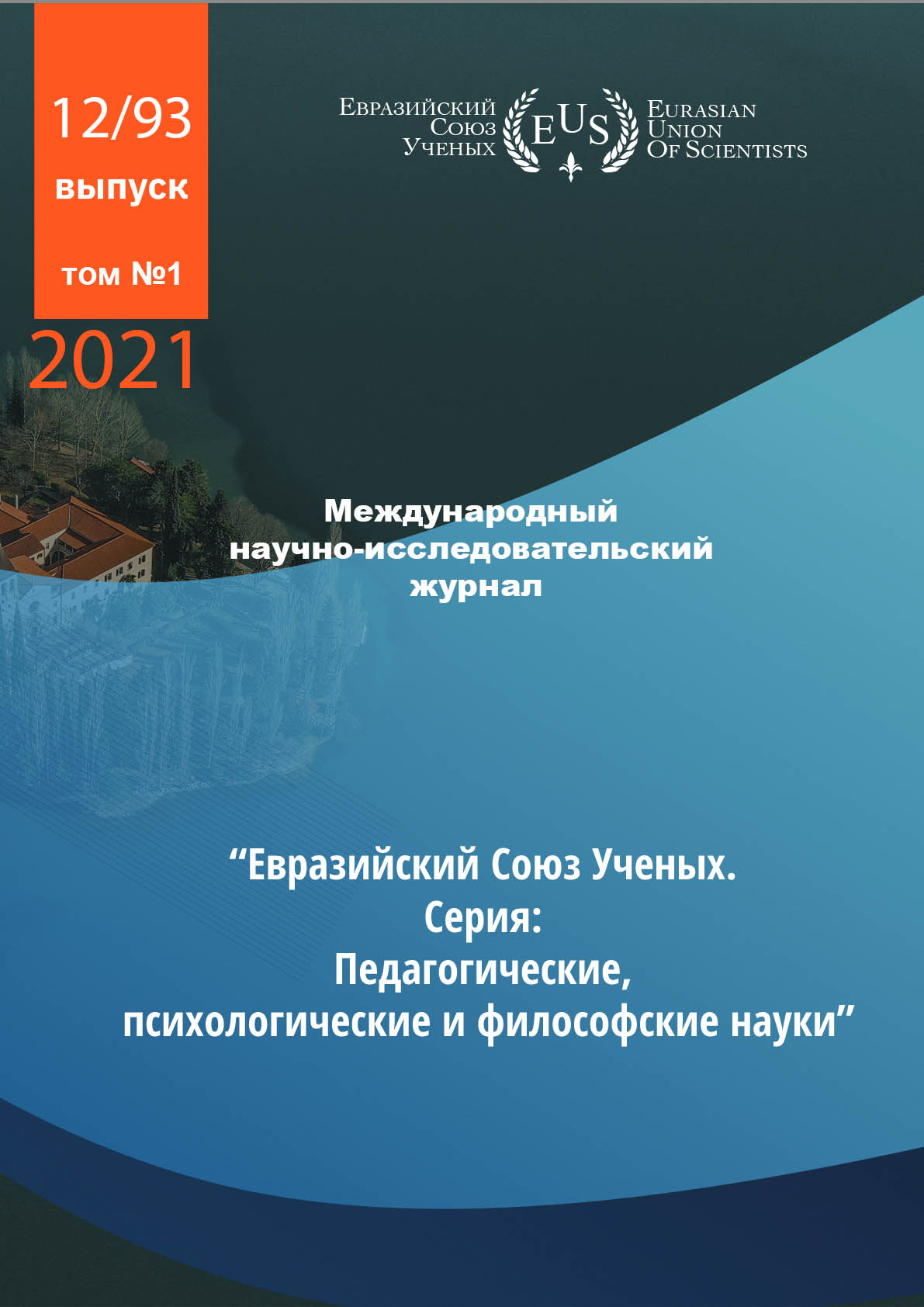ADAPTATION OF FOREIGN STUDENTS TO THE CONDITIONS OF THE EDUCATIONAL ENVIRONMENT OF THE UNIVERSITY: PROBLEMS AND PROSPECTS
Abstract
The article considers some problems on the part of the university teaching staff in working with foreign students on the example of the Moscow Pedagogical State University. The author offers his own approach to solving problems and further prospects in working with foreign students during their adaptation to the conditions of the educational environment of the university.
References
2.Ol'hovaja T.A., Hemraeva A.R., Paramonov V.B. Analiz strategij rossijskih universitetov po privlecheniju inostrannyh studentov // Sovremennye problemy nauki i obrazovanija. –2021. – № 3. URL: https://scienceeducation.ru/ru/article/view?id=30802 (data obrashhenija: 25.12.2021).
3.Slepuhin A.Ju. Vysshee obrazovanie v uslovijah globalizacii: problemy, protivorechija, tendencii. M.: forum, 2004. - S.3.
4.Stepanov D.A. Problemy social'noj adaptacii inostrannyh studentov k uslovijam rossijskogo vuza // Materialy XII Mezhdunarodnoj studencheskoj nauchnoj konferencii «Studencheskij nauchnyj forum» URL: https://scienceforum.ru/2020/article/2018022292 (data obrashhenija: 04.12.2021).
5.Todorova T.N., Kulikova E.V., Chvjakin V.A. Vozmozhnosti primenenija art-terapevticheskih metodov v pedagogicheskoj praktike obuchenija inostrannomu jazyku // Pedagogicheskoe obrazovanie v Rossii. 2019. № 9. – S. 32-37
6.Harchenko L.N., Dzhahbarov M.A., Kozilova L.V., Harlanova N.N. Sovremennye trendy razvitija nepreryvnogo pedagogicheskogo obrazovanija/ pod obshh. red. prof. L.N. Harchenko. Monografija. – M.: Izd-vo «Direkt-Media», 2019. – 180 s. DOI 10.23681/599812.
7.Jakovleva S.M. Rekruting mezhdunarodnyh studentov kak jelement internacionalizacii rossijskih vuzov // Universitetskoe upravlenie: praktika i analiz. 2016. № 106(6). - S. 64-70. DOI: 10.15826/umj.2016.106.060.
CC BY-ND
A work licensed in this way allows the following:
1. The freedom to use and perform the work: The licensee must be allowed to make any use, private or public, of the work.
2. The freedom to study the work and apply the information: The licensee must be allowed to examine the work and to use the knowledge gained from the work in any way. The license may not, for example, restrict "reverse engineering."
2. The freedom to redistribute copies: Copies may be sold, swapped or given away for free, in the same form as the original.





